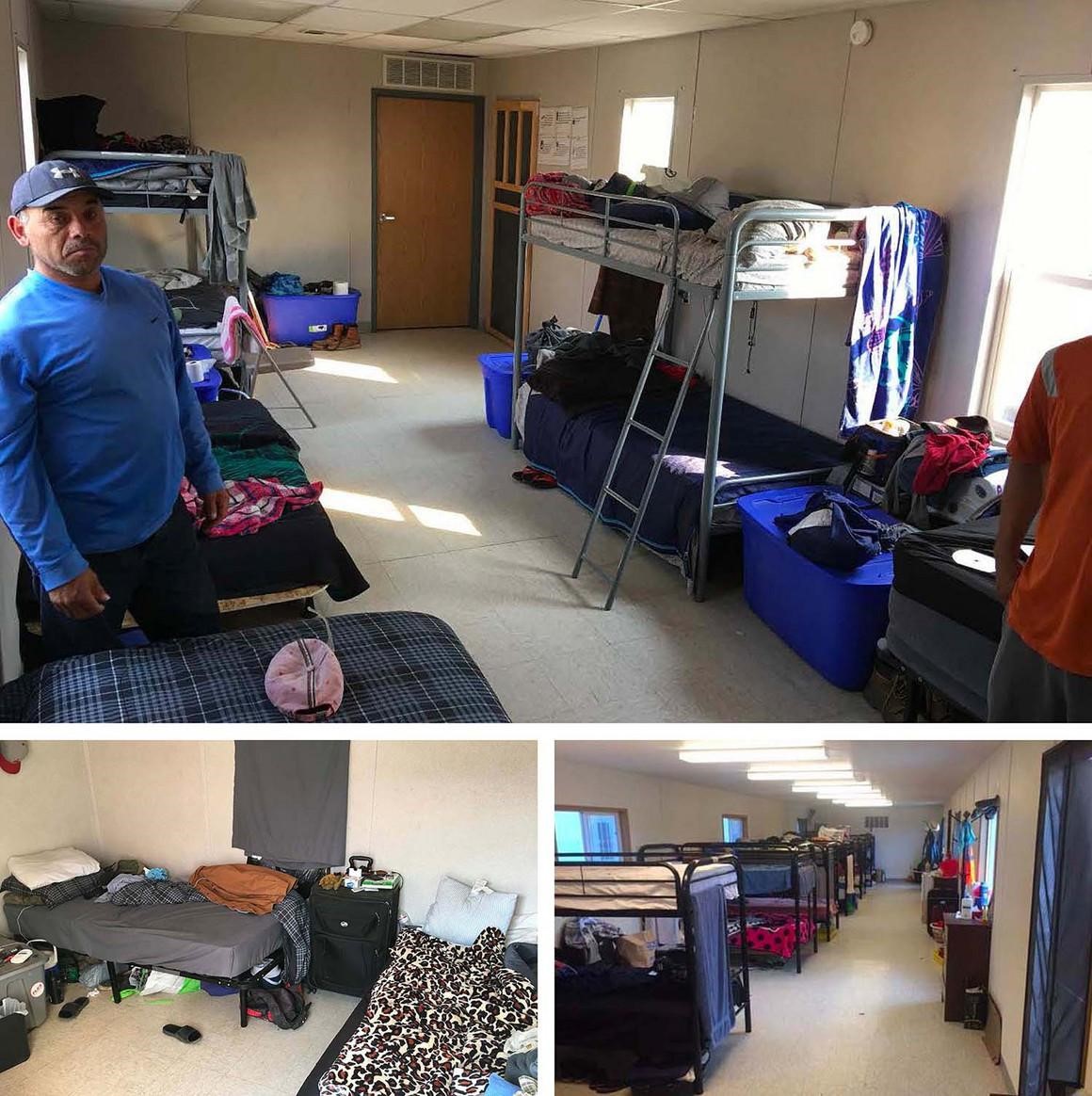At any one time depending on the season, there are over 1 to 2,4 million farmworkers in the U.S., about half of whom are undocumented. Living in close quarters with scarce personal protection equipment or opportunities for frequent handwashing, migrant farmworkers have an increased risk of contracting the coronavirus. Frequent exposure to pesticides, dust, and exhaust fumes from machinery can also have harmful effects on their immune system. Few have access to healthcare services, and workers are reluctant to stay home when they are sick because they won’t get paid. When testing for COVID-19 is provided, many are afraid to participate due to their undocumented status. Farmworkers in the southern states are now migrating to northern regions for the growing season, creating widespread fear that this will further result in the spread of the virus.
COVID-19 Spreading Among Farmworkers
As of July 13, 2020, more than 297 000 rural residents throughout the U.S. have tested positive for COVID-19 with 7 841 deaths. The map below, provided by the Environmental Working Group (EWG), compares the number of COVID-19 cases as of June 30, 2020 with counties estimated to have the highest concentrations of farmworkers. Red areas have a higher density of cases, and yellow areas have a lower density. Clicking on a county through the link below brings up more detailed information (link):
https://www.ewg.org/interactive-maps/2020-farmworkers-at-heightened-risk-of-covid-19/map/
Typical housing for migrant farmworkers is a dormitory style home or retrofitted trailer where as many as ten to twenty workers share bedrooms, bathrooms and kitchens. They travel to the worksite in trucks and vans in very close conditions. When handwashing stations in the fields are provided, they are often too far away to be accessed frequently. Brenda Eskenazi, a public health professor at the University of California, Berkeley, has helped lead extensive studies on the health of Latino farmworker families in California. She notes that “the time it takes to reach the handwashing stations can mean money lost. It might be really difficult to wash your hands for 20 seconds and to do this multiple times a day, especially if you’re getting paid by the basket of strawberries that you pick.” In packing operations, workers are also placed close together as they sort and arrange fresh produce for shipment.

Even though farmworkers have been deemed essential due to their critical role in maintaining the country’s food supply, the federal government has not made virus safety rules mandatory, leaving it up to the landowners as to what safety measures they want to implement. The Centers for Disease Control and Prevention (CDC) issued guidelines for critical employment sectors, but these are not required. However, the Department of Labor can obligate employers to follow these guidelines on an emergency basis, but so far it has decided not to. Labor advocates are pushing for legal requirements so workers can point to them when safety issues are a concern. The United Farm Workers would also like to see federal agencies and individual states require paid sick leave, access to health care, and expanded housing to provide more social distancing.
The Department of Labor stated, “Because of the enforcement authorities already available to it and the fluid nature of this health crisis, Occupational Safety and Health Administration (OSHA) does not believe that a new regulation, or standard, is appropriate at this time.”
Realizing their ability to harvest crops could be in jeopardy if a large number of workers came down with COVID-19, some large landowners have voluntarily installed more handwashing stations, expanded the amount of housing for workers and sanitized buses thoroughly. However, many owners of smaller farms have not implemented any additional safety measures yet.
Poor Health Increases Vulnerability
Even before the COVID-19 pandemic began, many migrant farmworkers had underlying medical conditions and little access to preventative healthcare. A study by the University of California Global Health Institute found that of hired crop workers in California, nearly 70 percent are uninsured and 95 percent of those employed by labor contractors have no health insurance through their job. With little time or money to cook nutritious food or to make doctor visits, many suffer from obesity, high cholesterol, diabetes, and hypertension. These conditions have been found to increase one’s risk of becoming severely ill from COVID-19.
Challenges of Testing
Immokalee, Florida is America’s winter tomato capital, with 25,000 people living there during the winter and early spring season. The Florida Department of Health reported over 1,207 cases of COVID-19 in the Immokalee zip code with a 36 percent positive rate.
For the first time in their history, Doctors Without Borders set up a clinic in the U.S., in Immokalee. They are providing testing for migrant workers, as well as distributing sanitation products and promoting public health practices. The mobile clinic travels from farm to farm testing farmworkers, but some are reluctant to give an accurate address or contact information in fear of being deported. According to Oscar Otzoy of the Coalition of Immokalee Workers, when agencies call to deliver positive test results, they are not asking contact tracing questions or telling the worker how long they should self-isolate.
Once the tomato season is over there is no work in Immokalee, so farmworkers migrate northward to fields in Georgia, the Carolinas, Virginia and Michigan. Advocacy groups fear they may be bringing the virus with them to these locations.
We’re very concerned that the worst is yet to come,” said Bruce Goldstein, president of Farmworker Justice, an advocacy group. “With the limited protections that are available, we’re afraid that there’s going to be a substantial increase in COVID-19 cases among farmworkers.”

Suzanne Driscoll is a freelance writer from St. Petersburg, Florida. She has written for national publications on issues involving business, healthcare, education and immigration.
Note: The opinions expressed in this article are the responsibility of the authors and do not necessarily reflect the opinion of IICA.
Add new comment